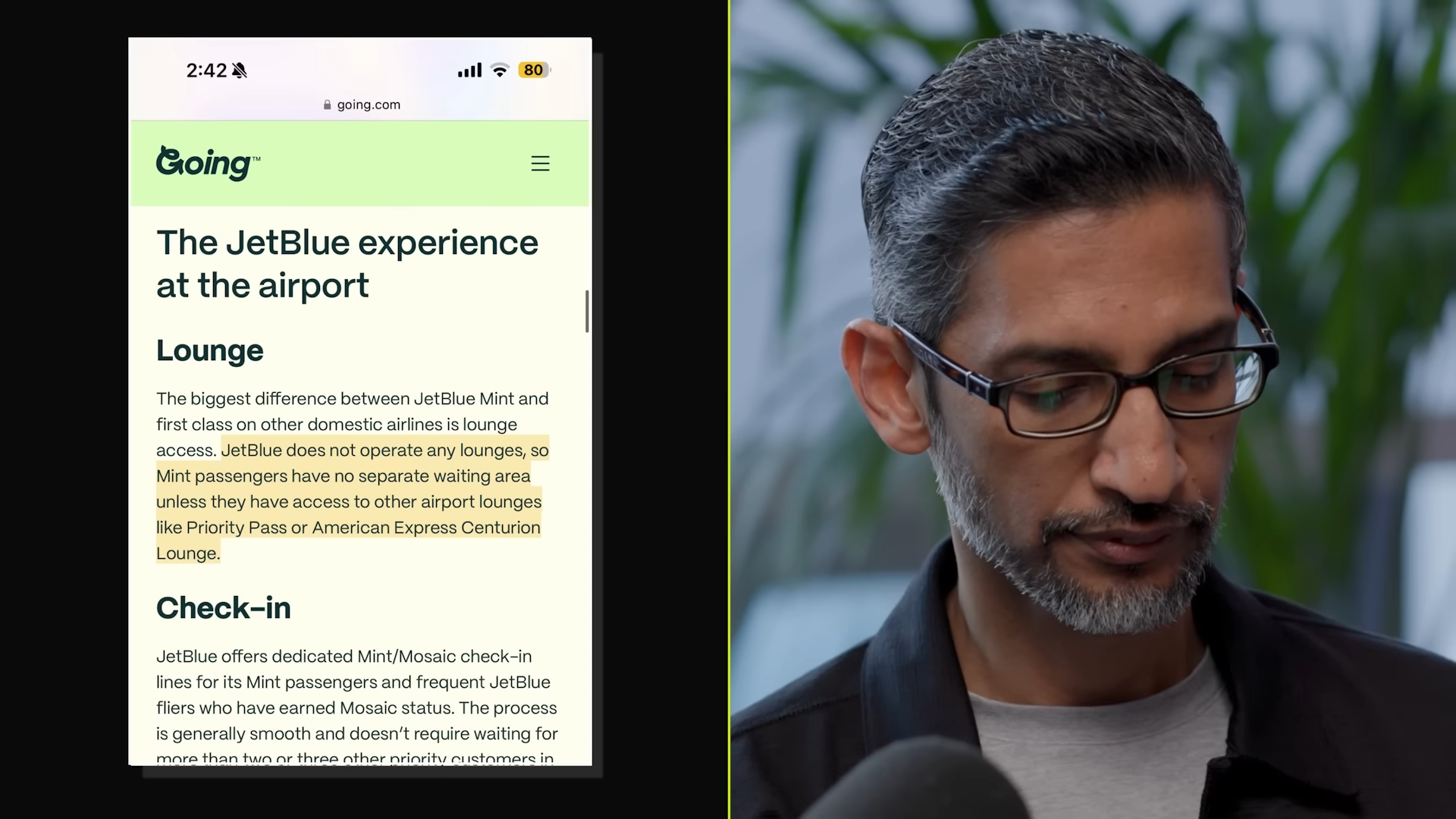Google CEO Sundar Pichai just gave the most evasive interview in the history of interviews

The Verge (Screenshot @YouTube)
Google CEO Sundar Pichai faced tough questions from The Verge editor-in-chief Nilay Patel in a recent interview about the company's new AI search.
In a remarkable interview, Patel pressed Pichai on issues such as potential copyright infringement, the impact of AI on the online content ecosystem, and the spread of misinformation through AI-generated responses. Pichai answered all of Patel's questions without giving any answers.
Here are a few examples of Pichai's evasiveness:
- When asked if Google would release data to support its claims about the traffic generated by AI overviews, Pichai said it was a fair question, but did not commit to sharing any metrics.
- When asked if it was appropriate for Google to pay for training data for AI models, Pichai said that in some cases there is value added to the models they would consider partnering on, while there are also instances of fair use. Pichai did not give a specific answer as to when Google would consider it appropriate to pay for AI training data versus claiming fair use.
- Patel showed Pichai an example of an AI overview that copied content nearly word-for-word from the top search result. Rather than addressing this, Pichai emphasized the scale of Google's search processing and said users would tell them if the experience wasn't valuable. Watch the video below for this revealing moment in the interview.
- When asked if the current search results page with an AI answer is the destination or an intermediate step to information, Pichai replied that it is difficult to predict the direction, but that they are testing things in a dynamic environment. Pichai did not make a clear commitment to sending traffic to the web, nor did he define the role or value added of AI summaries to make Google's strategy understandable.
- When asked how Google plans to compensate creators who feel that AI is "taking something away from them," Pichai replied that this is an issue that they as a platform will have to solve, and whoever does it best will win. He pointed to YouTube's success in the past, but did not mention any specific plans or commitments to compensate creators in relation to AI.
- When asked about the balance between creating synthetic content and ranking the best content, Pichai replied that this has defined the quality of search over the years. He expressed confidence that Google will be better than others at searching and ranking content. However, he did not provide details on how Google's systems will make these decisions.
- When asked if there is a roadmap for solving AI hallucinations, Pichai replied that progress is being made every year and there are interesting ideas being worked on, but the problem is not solved yet and time will tell if that will be the case. He did not provide further details on the roadmap or timeline. Nonetheless, Google continues to roll out AI summaries to millions of people, knowing that many of the AI answers will contain incorrect information.
Watch the full interview:
AI News Without the Hype – Curated by Humans
As a THE DECODER subscriber, you get ad-free reading, our weekly AI newsletter, the exclusive "AI Radar" Frontier Report 6× per year, access to comments, and our complete archive.
Subscribe now
Source: The Verge